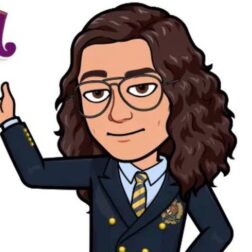Welcome to our second localizer spotlight, presenting this time Reza from our Persian community.
Q. What first drew you to want to volunteer with Mozilla’s localization program?
The growing community of Persian users highlighted the need for a browser created by the people for the people. Thus, I began assisting the community in translating Firefox into Persian. Subsequently, we expanded our efforts to include other products like Firefox for phones.
Q. What have been some of the most rewarding or impactful projects you’ve localized for Mozilla?
The entire endeavor with Mozilla was driven by volunteering and a strong motivation to provide safe and open-source tools to the community. Given the substantial Persian (Farsi) population of over 110 million people, ensuring their access to interactive and helpful tools became a significant priority. We also focused on addressing issues related to Mozilla extensions, particularly the text-reader (Readaloud), to assist individuals with visual disabilities.
We discovered that a substantial number of people with visual impairments were utilizing Mozilla’s text-reader because it was one of the few free and open tools that catered to their specific needs. One day, I received an email from a Persian user with visual impairment, in which she highlighted the widespread utility of such tools for her and her friends. This instance made me realize that we needed to broaden our perspective beyond ordinary users, especially concerning localization, and emphasize accessibility as a key aspect of our work.
Q. What are some of the biggest challenges you’ve faced in translating Mozilla projects? How did you overcome them?
Translating a product is often not sufficient, especially when dealing with Right-To-Left (RTL) languages. It’s imperative to consider usability, accessibility, and how people with diverse language backgrounds perceive the product. Therefore, addressing all the UI/UX challenges and ensuring the product is user-friendly for the end users proved to be quite challenging.
Q. What skills or background do you think helps most for becoming an effective Mozilla translator?
I’m a computer scientist with a passion for open-source software. Naturally, my technical knowledge was sufficient to embark on this journey. However, I found it crucial to put myself in the shoes of end users, understanding how they wish to perceive the product and how we can create a better experience for them.
Q. What advice would you give to someone new wanting to get involved in localizing for Mozilla?
Think about the broader impact that your work has on the community. Translating can be challenging and sometimes even tedious, but we must remember that these small pieces of work drive the community forward and present new opportunities for them.
Interested in featuring in these spotlights? Or know someone you think we should interview? Fill out this form, or reach out directly to delphine at mozilla dot com. Interested in contributing to localization? Head on over here for more details!
Useful Links
- #l10n-community channel on Element (chat.mozilla.org)
- Localization category on Discourse
- L10n blog










No comments yet
Post a comment